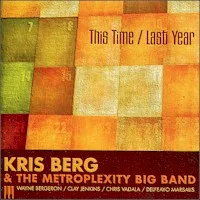Styles: Jazz, Vocal
Year: 2013
File: MP3@320K/s
Time: 50:23
Size: 116,7 MB
Art: Front
(3:27) 1. Superwoman
(3:55) 2. If I Could Turn Around
(3:35) 3. Je reviens te chercher
(3:32) 4. Philadelphia
(4:31) 5. Wanna Be Startin' Somethin'
(3:59) 6. Lily
(4:42) 7. Honest To the Bones
(4:05) 8. Fling
(4:23) 9. If You Don't Know Me By Now
(3:33) 10. Chambre d'hôtel
(3:36) 11. I Could Have Told You
(3:39) 12. Tell It Like It Is
(3:19) 13. Ashes To Ashes
Year: 2013
File: MP3@320K/s
Time: 50:23
Size: 116,7 MB
Art: Front
(3:27) 1. Superwoman
(3:55) 2. If I Could Turn Around
(3:35) 3. Je reviens te chercher
(3:32) 4. Philadelphia
(4:31) 5. Wanna Be Startin' Somethin'
(3:59) 6. Lily
(4:42) 7. Honest To the Bones
(4:05) 8. Fling
(4:23) 9. If You Don't Know Me By Now
(3:33) 10. Chambre d'hôtel
(3:36) 11. I Could Have Told You
(3:39) 12. Tell It Like It Is
(3:19) 13. Ashes To Ashes
Térez Montcalm is a Canadian jazz singer and guitarist who broke through to international success in 2007. Born in Quebec, Canada, she grew up bilingually in a family where French and English were spoken interchangeably and where music was important. Her father, a native English speaker originally from Toronto, was a jazz fan who enjoyed Ella Fitzgerald, Billie Holiday, and Nat King Cole. The youngest of five children, she had brothers who were into Jimi Hendrix and Frank Zappa as well as sisters who were into the Beatles and Edith Piaf. In addition to these influences, Montcalm had favorites of her own, above all Eurythmics lead singer Annie Lennox. Exhibiting an extraordinarily strong voice from an early age, she attended music school as a teenager and ultimately made her full-length recording debut in 1994 with the album Risque on BMG. Sung primarily in French and comprised of original material as well as covers of Charles Aznavour, Tom Waits, and others, Risque was well received from a critical standpoint, and in the wake of its release, Montcalm was awarded a Prix Rapsat-Lelièvre in 1995.
She released her follow-up album, Parle Pas Si Fort, on Universal in 1997 and subsequently retreated from the marketplace for a while, not releasing her third album, Térez Montcalm, until five years later in 2002. Montcalm changed direction on her fourth album, Voodoo, which arrived in 2006. Comprised almost entirely of cover songs, many of them well known (e.g., Eurythmics' "Sweet Dreams"), and sung primarily in English rather than French, Voodoo was produced by former Uzeb jazz-rock guitarist Michel Cusson and released on the Universal subsidiary label GSI Musique. A year after its release, Voodoo broke into the French albums chart and remained there for a total of 30 weeks, going all the way to number 43. ~ Bio https://itunes.apple.com/ca/artist/terez-montcalm/id28719874#fullText
I Know I'll Be Alright




















